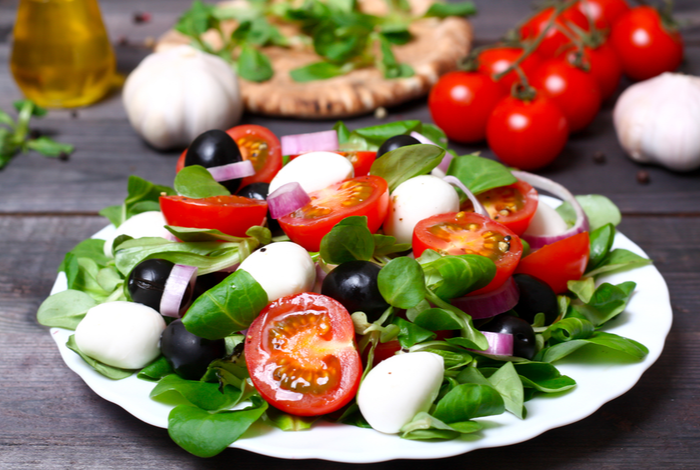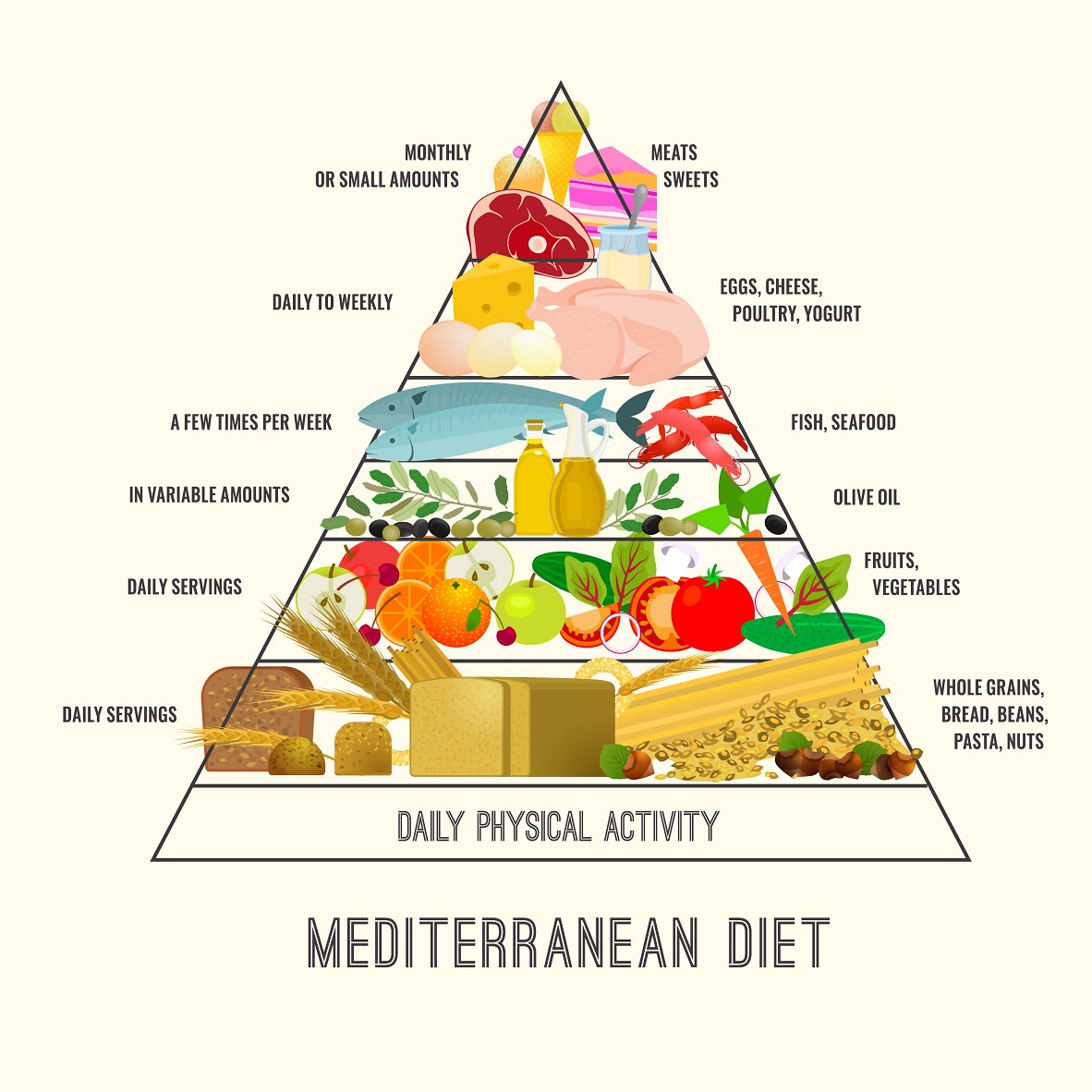
Ageing and lifestyle can have an impact on your vision, but there are things you can do to improve the health of your eyes. While we’re still unsure about the underlying causes of age-related macular degeneration (AMD), we do know how to reduce the risks of developing the disease.
One of the easiest and most effective steps you can take at home is to make sure you get enough nutrients that aid in macular health through diet and supplements. Don’t worry - you don’t have to go out and buy some sort of expensive rare berry from Tibet or gland harvested from an endangered animal - foods good for your eyes are easily found in your local supermarket. Always check with your Doctor before making any diet or lifestyle changes. AMD isn't the only eye condition that may be helped through diet. Free radicals created by factors such as sun exposure, environmental pollution and diet, may all affect eye health. Maintaining a healthy diet containing the right nutrients may stave off or help slow the progress of degenerative eye conditions, such as glaucoma .
Eat Your Greens
Lutein and zeaxanthin are two nutrients found in high concentrations in a healthy macula, so it stands to reason that foods high in these nutrients can help ensure that your macula stays healthy. Lutein and zeaxanthin can be found in high levels in dark green leafy vegetables. The vegetables with the highest levels of these two nutrients include:
- Kale
- Spinach
- Silverbeet/Swiss chard
- Collard greens
- Turnip greens
The nutrients can also be found in a number of other foods in moderate to high quantities including:
- Egg yolk
- Green beans
- Brassicas - broccoli, brussel sprouts
- Peas
- Pumpkin
- Corn
- Cress
Leafy greens are high in vitamin K, a vitamin responsible for helping blood coagulation and binding calcium to bones. As such eating a diet high in vitamin K may cause problems with people prescribed blood thinners such as warfarin.
Bad Fats, Good Oil
Leafy greens are better digested when combined with a little fat, but choosing the right kind of fat can be beneficial to the health of your eyes. Most healthy diets recommend limiting the intake of fat, especially saturated fats, but some fats are incredibly good for you.
Extra virgin olive oil is the least processed form of olive oil available and has a range of beneficial nutrients. Extra virgin olive oil contains vitamin E and vitamin K but most importantly is high in antioxidants and has anti-inflammatory properties. Antioxidants are biologically active and can fight disease, and it is believed that anti-inflammatory foods can help reduce inflammation in the retina and choroid layer.
Omega-3
Having enough omega-3 fatty acids in your diet is good for pretty much every part of your body, with beneficial effects including reducing anxiety and depression, aiding brain health, reducing the risk of heart disease and reducing fat in your liver. In addition to this, omega-3 fatty acid is extremely beneficial to overall eye health.
DHA, a type of omega 3 fatty acid is one of the major components of the retina, and having enough omega-3 in your acid in your diet is not only good for retinal health but can significantly reduce the risk or progression of age-related macular degeneration .
Oily fish are the best source of omega-3s, but the fatty acid can be found in a number of foods. Excellent sources of omega 3 fatty acids include:
- Anchovies
- Brussel sprouts
- Herring
- Mackerel
- Omega-3 enhanced foods - such as eggs, milk and yoghurt
- Salmon
- Sardines
- Spinach
- Trout
- Walnuts
Canned and Frozen Food
To get enough omega-3s in your diet, eating oily fish two to three times a week is recommended, but getting that much fresh fish for a reasonable price may be beyond a lot of people either due to cost or availability. Thankfully, canned fish contains all the vital nutrients of fresh fish for a fraction of the cost.
Tinned sardines, herring and mackerel are cheap, healthy and convenient, not to mention tasty. If canned fish isn’t your thing, frozen fish is just as healthy as fresh fish, so long as it isn’t covered in batter or crumbing.
Frozen or canned vegetables are also an excellent and convenient source of nutrients. While there are some health benefits to fresh vegetables, there is nothing wrong with supplementing your diet with canned or frozen vegetables.
If you want an eye test and macular check, book an appointment with an optometrist near you on MyHealth1st .
Zinc
Zinc helps carry vitamin A from the liver to the retina. Vitamin A aids in the production of melanin, a protective pigment. While a lack of zinc is more often associated with a lack of night vision and cataracts than it is with macular degeneration, taking zinc in combination with other supplements can slow the progression of the disease.
Zinc can be found in a number of foods, including:
- Dairy - especially cheese
- Eggs
- Legumes
- Nuts
- Poultry
- Red meat
- Seeds
- Shellfish
- Whole grains
The Mediterranean Diet

One easy way to ensure that you are eating a diet that will supply you with nutrients for eye health is to adopt what is known as a Mediterranean diet . That doesn’t mean binging on pizza, pasta and moussaka every meal, but rather basing your food around a traditional diet common to areas in Greece and Southern Italy that is high in legumes, fresh fruit, vegetables and fish, and low in saturated fats. You can also have a glass or two of wine. The equivalent of one espresso a day also appears to have health benefits, most probably due to the number of antioxidants in coffee.
Collaborative research across Europe is showing that a Mediterranean diet can have a marked effect on eye health, with people adhering to the diet cutting their risk of late stage AMD by up to 41% .
If some foods rich in eye health nutrients are unavailable to you due to supply, allergy or other reasons, you can also take those vitamins or nutrients as supplements. Before taking any supplements or radically altering your diet you should consult your doctor. Some supplements may be contra-indicated for medicines you may be taking, or may require another supplement for balance - taking zinc can make it harder for the body to absorb copper so a copper supplement may also be needed.
If you do need to see a doctor to discuss changing your diet or supplementing nutrients, or wish to see an optometrist for an eye test and macular check or any other kind of support , the easiest and most convenient way is to book online with MyHealth1st . For menu ideas that are sure to keep both your eyes and stomach satisfied, the Macular Disease Foundation of Australia has a number of free Macula Menus for you to download and enjoy.